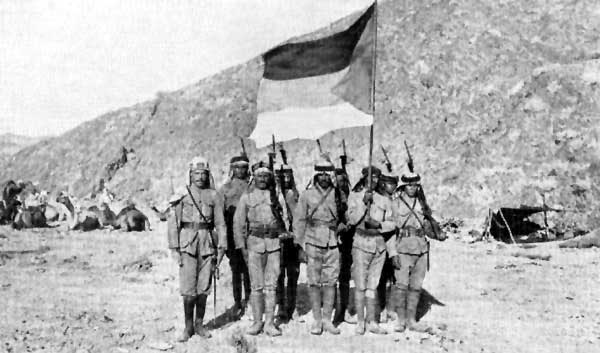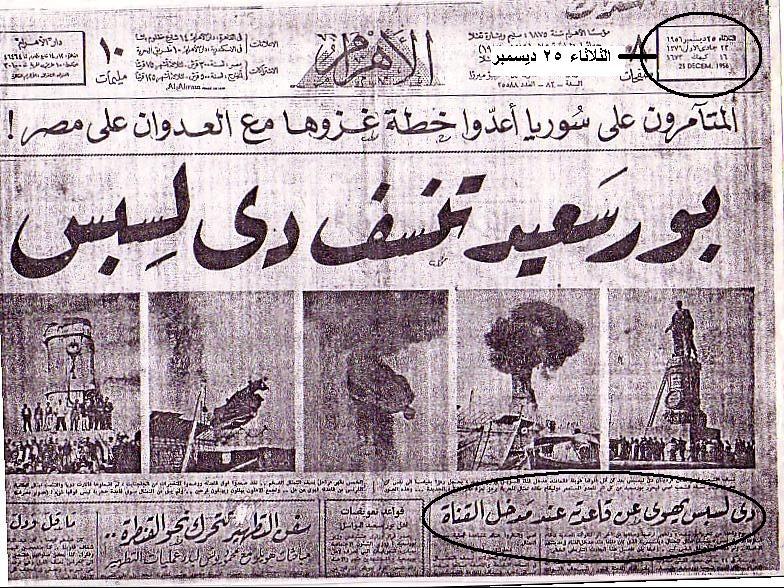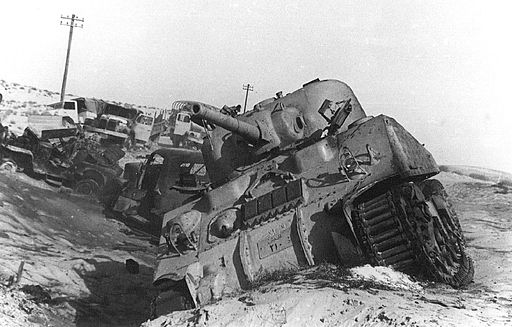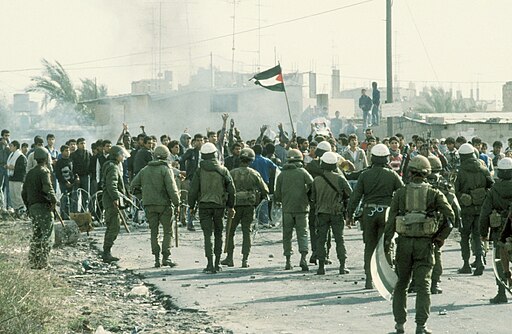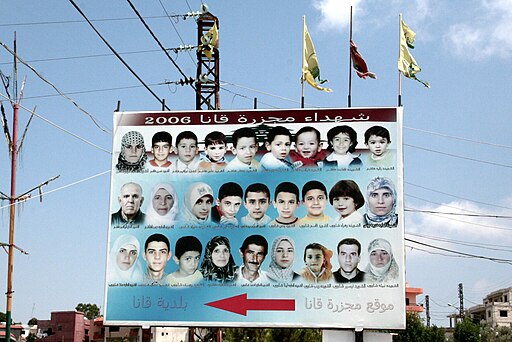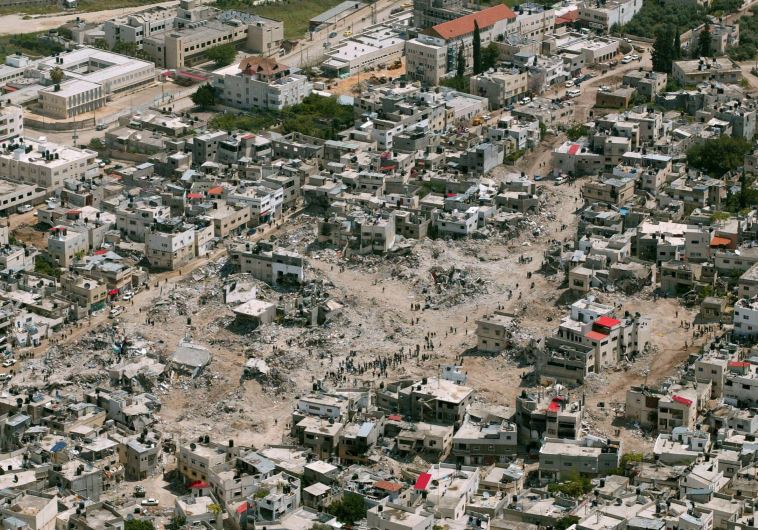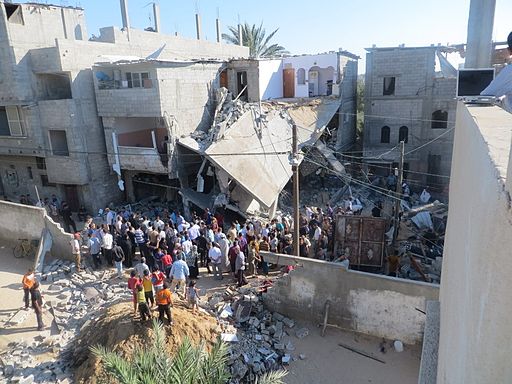Destruction Chronicled
An exhaustive timeline showcasing the onslaught: the obliteration of historical and religious sanctuaries, the bombardment of residential areas, and the intentional targeting of the most vulnerable, with dates and events corroborated by international observers.


Balfour Declaration
1917
In November 1917, the British government issues the Balfour Declaration, expressing support for the establishment of a "national home" for the Jewish people in Palestine, despite the presence of an indigenous Palestinian population. This declaration is viewed by Palestinians as a betrayal of their rights and aspirations, marking the beginning of a long and tumultuous conflict.

April 1920 Riots
1920
Growing tensions between the Jewish and Arab communities in Jerusalem erupt into violent riots in April 1920, resulting in 5 Palestinian deaths and 200 injuries. These riots highlight the escalating tensions and growing animosity between the two communities.

May 1921 Riots
1921
In May 1921, following the death of a Jewish boy in Jaffa, widespread violence breaks out between the Jewish and Arab communities, leading to 48 Palestinian deaths, 231 injuries, and 149 arrests. These riots further exacerbate the divisions and deepen the rift between the two groups.
Hebron massacre
1929
In August 1929, Jewish militants launch a brutal attack on the Arab city of Hebron, killing 67 Palestinians and injuring 50. This event is considered a turning point in the Arab-Israeli conflict, marking a significant escalation of violence and fueling Palestinian resentment towards the Zionist movement.
Arab revolt
1936–1939
A major Palestinian uprising against British rule and Zionist aspirations takes place between 1936 and 1939. The revolt, known as the Great Arab Revolt, is characterized by strikes, protests, and armed resistance. While the revolt is eventually suppressed by British forces, it demonstrates the Palestinian determination to resist British rule and Zionist ambitions.
UN Partition Plan
1947
In November 1947, the United Nations General Assembly adopts a resolution to partition Palestine into two states, one Jewish and one Arab. The plan is accepted by the Jewish leadership but rejected by the Palestinian leadership, who view it as a blatant injustice and a usurpation of their rightful land.
Israeli Declaration of Independence and the Nakba
1948
On May 14, 1948, Jewish leaders declare the establishment of the State of Israel. This event, known as the Declaration of Independence, marks a pivotal moment in the conflict, as it signifies the formalization of a Jewish state in Palestine. However, for Palestinians, it represents the Nakba, or "catastrophe," as it triggers the expulsion and displacement of hundreds of thousands of Palestinians from their homes, marking the beginning of the Palestinian refugee crisis.
Deir Yassin massacre
1948
On April 9, 1948, Israeli forces attack the Palestinian village of Deir Yassin, killing hundreds of civilians, including women, children, and elderly people. The massacre is considered one of the most brutal acts of violence during the 1948 Arab-Israeli War and has become a symbol of Palestinian suffering.
Law of Return
1948
Israel passes the Law of Return, granting automatic citizenship to any Jew who immigrates to Israel. This law is seen by Palestinians as discriminatory and as a means of increasing the Jewish population in Israel while limiting the Palestinian population.
Resolution 194
1948
UN General Assembly Calls for the right of Palestinian refugees to return to their homes and for compensation for those who choose not to return
Absentee Property Law
1950
Israel passes the Absentee Property Law, which allows the Israeli government to expropriate the land and property of Palestinians who have fled or been expelled from their homes. This law is considered a form of collective punishment and has contributed to the displacement of Palestinians.
Arab-Israeli War and the Suez Crisis
1948–1956
In response to the establishment of Israel, the Arab states of Egypt, Syria, Lebanon, Jordan, Iraq, and Saudi Arabia launch a war against Israel, known as the 1948 Arab-Israeli War. The war ends with Israel in control of most of the territory that had been designated for the Palestinian state.
In 1956, Israel joins forces with Britain and France to invade Egypt in an attempt to overthrow Egyptian President Gamal Abdel Nasser. The Suez Crisis ends with Israel withdrawing from Egyptian territory.
Over 15,000 Palestinians were killed, over 750,000 displaced.
Sinai War
1956
Israel launches a military operation, known as the Sinai War, against Egypt in October 1956, seizing control of the Sinai Peninsula. The war, also known as the Second Arab-Israeli War or the Tripartite Aggression, results in over 200 Egyptian soldiers and 17 Israeli soldiers killed.
Six-Day War and the Israeli Occupation
1967
In June 1967, Israel launches a preemptive war against Egypt, Syria, and Jordan, known as the Six-Day War. The war ends with a decisive Israeli victory, resulting in Israel's occupation of the Sinai Peninsula, Gaza Strip, West Bank, and Golan Heights.
This occupation marks a significant turning point in the conflict, as it places millions of Palestinians under Israeli rule and exacerbates the Palestinian struggle for self-determination.
Over 6,000 Palestinians, Egyptians, Jordanians, and Syrians killed
Karameh incident
1968
In March 1968, Israeli forces launch a major military operation against Palestinian fedayeen (guerrilla fighters) in the Jordanian town of Karameh. The ensuing battle, known as the Karameh incident, results in heavy casualties on both sides, with estimates ranging from 110 to 128 Jordanian soldiers, 30 to 40 Palestinian fedayeen, and 2 Israeli soldiers killed. The incident serves as a symbol of Palestinian resistance and determination, while also highlighting the escalating violence between Israel and Palestinian militant groups.
Prevention of Infiltration Law
1970
Israel passes the Prevention of Infiltration Law, which grants the Israeli military broad powers to detain and deport Palestinians from the occupied territories. This law has been used to restrict Palestinian movement and to expel Palestinians from their homes.
Emergence of Jewish settler organizations
1980
Jewish settler organizations begin to emerge in the occupied territories, advocating for the expansion of Israeli settlements and the annexation of the West Bank. These organizations have been accused of using violence and intimidation against Palestinians.
Increased settlement activity, displacement of Palestinians, heightened tensions between Palestinians and settlers.
Jerusalem Law
1985
Israel passes the Jerusalem Law, which declares Jerusalem as its "eternal and undivided capital." This law is not recognized by the international community and has been condemned by Palestinians as a denial of their right to East Jerusalem as the capital of a future Palestinian state.
Denial of Palestinian sovereignty over East Jerusalem, erosion of Palestinian cultural and religious ties to the city
First Intifada
1987
In December 1987, a Palestinian uprising against Israeli occupation breaks out in the Gaza Strip, known as the First Intifada. The uprising spreads to the West Bank and is characterized by widespread protests, strikes, and acts of non-violent resistance. The Intifada lasts for six years, resulting in the deaths of over 1,500 Palestinians and the detention of thousands more. The First Intifada marks a significant shift in Palestinian resistance tactics and highlights the growing determination of the Palestinian people to achieve independence.
Closure of Bir Zeit University
1988
Israel closes Bir Zeit University, a prominent Palestinian university in the West Bank, for eight years. This closure is seen as an attempt to suppress Palestinian education and political activism.
Disruption of Palestinian education, limitations on freedom of expression and assembly.
Oslo Accords
1993
In September 1993, Israel and the PLO sign the first of a series of agreements known as the Oslo Accords. The accords aim to establish a two-state solution to the Israeli-Palestinian conflict, with an independent Palestinian state alongside Israel. While the Oslo Accords are seen as a step towards peace, they also generate controversy and divisions within both the Israeli and Palestinian communities.
Qana massacre
1996
In April 1996, Israeli forces bombard a UN compound in the Lebanese village of Qana, killing 102 to 112 Lebanese civilians, mostly women and children. The massacre sparks international condemnation and raises questions about the proportionality of Israel's military actions.
UN Millennium Declaration
2000
Reaffirms the right of the Palestinian people to self-determination and statehood.
Second Intifada
2000
A second Palestinian uprising erupts against Israeli occupation. The Second Intifada is characterized by more violence than the first Intifada. Over 5,000 Palestinians killed.
Jenin massacre
2002
In April 2002, Israeli forces launch a military operation in the Jenin refugee camp in the West Bank, resulting in the deaths of over 50 Palestinians, including civilians and militants. The massacre, known as the Jenin massacre, sparks international outcry and highlights the brutality of the conflict.
Citizenship and Entry into Israel Law
2002
Israel passes the Citizenship and Entry into Israel Law, which makes it more difficult for Palestinians to obtain Israeli citizenship or residency. This law is seen as discriminatory and as an attempt to limit the Palestinian population in Israel.
UN Human Rights Council
2002
Special Rapporteur on the situation of human rights in the Palestinian territories occupied since 1967. Condemns Israel's human rights violations in the occupied territories
Amnesty International
2002
Report: Israel's "Operation Determined Protection": A web of human rights violations. Documents Israel's widespread human rights violations during Operation Defensive Shield
International Court of Justice
2004
Advisory Opinion on the Legal Consequences of the Construction of a Wall in the Occupied Palestinian Territory Declares the construction of the Israeli separation barrier to be illegal under international law
Operation Rainbow
2004
In May 2004, Israel launches a military operation in the Gaza Strip, known as Operation Rainbow. The operation aims to eliminate Palestinian militant groups and stop rocket attacks into Israel. However, the operation results in the deaths of 115 to 120 Palestinians, including civilians and militants. The high civilian death toll raises concerns about the proportionality of Israel's military actions.
Lebanon War II
2006
In July 2006, Israel launches a military operation in Lebanon, known as the Lebanon War II or the Second Lebanon War. The war is triggered by the capture of two Israeli soldiers by the Hezbollah militant group. The war lasts for 34 days, resulting in the deaths of over 1,200 Lebanese civilians, 300 Palestinians, and 160 Israelis. The war is widely criticized for the high civilian casualties and the destruction it causes in Lebanon.
Gaza blockade
2006
Israel imposes a blockade on the Gaza Strip, severely restricting the movement of people and goods. The blockade has a devastating impact on the economy of Gaza and contributes to a humanitarian crisis in the territory.
Over 2 million Palestinians under blockade, severe economic hardship, limited access to essential goods and services.
Human Rights Watch
2008
Report: Israel's Unlawful Collective Punishment of Palestinians. Documents Israel's use of collective punishment against Palestinians in the Gaza Strip.
Gaza War
2008–2009
In December 2008, Israel launches a military operation in the Gaza Strip, known as the Gaza War or the Operation Cast Lead. The war aims to stop rocket attacks from Gaza into Israel. However, the war results in the deaths of over 1,400 Palestinians, including civilians and militants. The high civilian death toll raises international condemnation and highlights the devastating impact of the conflict on the Palestinian population.
Operation Pillar of Defense
2012
In November 2012, Israel launches a military operation in the Gaza Strip, known as Operation Pillar of Defense. The operation lasts for eight days, resulting in the deaths of 160 Palestinians, mostly civillians. The operation is widely criticized for the high civilian casualties and raises concerns about the use of disproportionate force by Israel.
UN Human Rights Council
2012
Report of the Independent Commission of Inquiry on the Human Rights Violations in the Gaza Strip. Finds that Israel committed war crimes and crimes against humanity during Operation Pillar of Defense
Prawer Plan
2012
Israel's Prawer Plan is leaked, revealing a strategy to displace Palestinians from the Jordan Valley. The plan is widely condemned by the international community and raises concerns about Israel's intentions in the occupied territories.
Killing of Yara Aweidat
2013
A 15-year-old Palestinian girl, Yara Aweidat, is killed by Israeli gunfire as she stands in her doorway in the West Bank village of Beitunia. Her death is widely condemned by the international community.
Loss of a young Palestinian life, highlights the dangers faced by Palestinian civilians in the occupied territories.
Killing of James Miller
2014
British aid worker James Miller is killed by an Israeli airstrike in the Gaza Strip while delivering humanitarian aid. His death sparks international outrage and raises concerns about the proportionality of Israel's military actions.
Loss of a humanitarian worker, undermines international relief efforts in Gaza.
Operation Protective Edge
2014
In July 2014, Israel launches a military operation in the Gaza Strip, known as the Gaza War or the Operation Protective Edge. The war aims to destroy the tunnels used by Hamas militants to launch attacks into Israel. However, the war results in the deaths of over 2,200 Palestinians, mostly civilians. The high civilian death toll raises international condemnation and highlights the devastating impact of the conflict on the Palestinian population.
B'Tselem
2015
Report: This is Not a War It's a Slaughter
Documents the disproportionate use of force by Israel during Operation Protective Edge
Resolution 35/33
2017
UN Human Rights Council Condemns Israel's settlement policy and calls for an end to all settlement activities.
Killing of Razan al-Najjar
2018
Palestinian medic Razan al-Najjar is shot and killed by Israeli forces while providing medical assistance to wounded protesters during the Great March of Return in Gaza. Her death sparks widespread protests and condemnation of Israel's use of force against unarmed civilians.
Loss of a medical professional, highlights the risks faced by Palestinian healthcare workers in Gaza.
Enactment of the Nation-State Law
2019
Israel passes the Nation-State Law, which enshrines the Jewish character of the state and prioritizes Jewish rights over those of Palestinians.
Institutionalized discrimination, apartheid.
Investigation into war crimes in occupied territories
2019
The ICC prosecutor applies to open an investigation into alleged war crimes committed by Israel and Palestinian armed groups in the occupied Palestinian territories.
War crimes, crimes against humanity.
Killing of Shireen Abu Akleh
2021
Palestinian-American journalist Shireen Abu Akleh is shot and killed by Israeli forces while reporting on an Israeli military operation in the Jenin refugee camp in the West Bank. Her death is widely condemned by the international community and raises concerns about Israel's targeting of journalists.
Loss of a prominent journalist, undermines freedom of the press and the ability to document events in the occupied territories.
Evictions in Sheikh Jarrah
2021
Israel's Supreme Court approves the eviction of four Palestinian families from their homes in the Sheikh Jarrah neighborhood of East Jerusalem. These evictions are seen as part of a broader effort by Israel to Judaize East Jerusalem and undermine Palestinian claims to the city.
Displacement of Palestinian families, exacerbates tensions and contributes to the escalation of violence in May 2021.
Operation Guardian of the Walls
2021
In May 2021, Israel launches a military operation in the Gaza Strip, known as the Gaza War or the Operation Guardian of the Walls. The war is triggered by Hamas rocket attacks into Israel following the evictions of Palestinians in Sheikh Jarrah, East Jerusalem. The war lasts for 11 days, resulting in the deaths of over 250 Palestinians, including civilians and militants. The war raises concerns about the repeated cycles of violence and the lack of progress towards a lasting peace settlement.
Amnesty International
2021
Report: Israel's Apartheid Against Palestinians
Accuses Israel of practicing apartheid against Palestinians in both Israel and the occupied territories
Human Rights Watch
2022
Report: A Threshold Crossed: Israeli Authorities and the Crimes Against Humanity of Apartheid Concludes that Israel's policies and actions in the occupied territories meet the legal definition of apartheid.
take action

Contact Your Elected Representatives
Enter your postcode to instantly call or send a pre-written letter to your lawmakers.

Report An Incident of Islamophobia
Have you been affected by Islamophobia, let us know and our team will reach out to assist you.
A History of Crimes
Learn the historical facts in this timeline of crimes by the State of Israel.
Organize Your Community
Join hands with us in organized efforts to push for change.

Browse our collection of education resources
Use this extensive library of resources for educators, community leaders, parents and children to learn more about the conflict and find more ways to take action.

